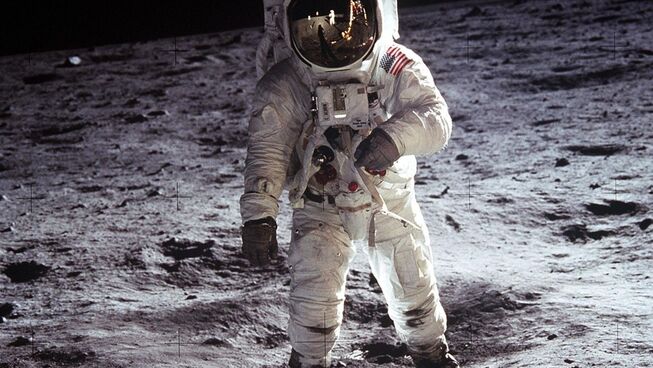God’s rescue mission

Micro-story’s connection with the meta-story
The recent story of the boy’s soccer team that was rescued from the cave in Thailand dominated headlines. The world was rapt with attention around this rescue mission. The drama, the danger and the hope were palpable on screens and in the media. The world loves to hear a story about a rescue mission.
The real-life stories and well-told fictional accounts manage to show how the micro-story can influence the meta-story.
What is a micro-story? Each person who has inhabited this planet we call earth from the beginning of time has their own story. A mere blip on the radar screen of eternity, but significant enough for the world to care about this unique narrative.
What is the meta-story? Reimagining the term introduced by Jean-François Lyotard which refers to a narrative that depicts various historical events, experiences, and cultural phenomena that are based upon an appeal to universal truth or values. For Christians, this has the potential to be an expression of God’s story. The big picture. The beginning to the end. The rise and fall of mankind and God’s rescue mission.
Why do we care about a small group or even one human’s plight on the other side of the world? What does it tell us about ourselves and can it also point us to God? In the search for the answer to this philosophical query, it could be found in the 2015 brilliantly told story of Mark Watney played by Matt Damon in The Martian.
A science-fiction journey that manages to show how someone’s micro-story impacts the meta-story.
For those who are not familiar with the film from director Ridley Scott based on Andy Weir’s 2011 novel, The Martian is the fictional tale of an astronaut who is unintentionally left behind on Mars by his crew. After NASA and his crew members realise he is still alive on the red planet, everyone involved moves to save the life of the botanist before the potatoes run out and he perishes at the space station.
Ridley Scott and screenwriter Drew Goddard took audiences through the ripple effect of one man’s personal history through to the impact it has on the crew of the Hermes to the wave that eventually hits NASA and finally to how the world ultimately reacts. A journey that shows how the minuscule events in Mark Watney’s life grow into an irresistible narrative that travels light years to the imaginations of the world.
The enticing visual journey travels from screen to screen with each step growing in size and significance. From Watney vlogging to the computer on the crew’s surface habitat to the large monitors of NASA to the massive screens that conveyed his story around to the people of the globe. A message of survival and an account of recovery and salvation, which points to the overarching message of God’s story for us all.
What is the connection between The Martian, a soccer team in Thailand and God?
From the fictional story of Mark Watney to the soccer team in Thailand, a few questions manage to fester in people’s minds and demand answers: Why do people care? Why do people spend millions of dollars to save a few people or even one person? What makes people want to spend millions of dollars to watch this fictional rescue mission?
The answer to these questions and the potential reason for mankind’s interest could be that we are wired for a salvation narrative. Many may not realise that the underlying theme of God’s meta-story is a rescue mission. This is a theme seen throughout and is the primary point of the Bible: God is on a rescue mission for all of mankind. Woven into this epic journey is that humanity is not only the focus of this rescue, but that each man, woman and child is a created reflection of God. This develops into the deeper meaning that we are hardwired to seek after stories of salvation, including our own.
Spoiler alert: The Martian was a wonderful combination of writing, acting and filmmaking and should be celebrated for its merits, but it is hard to miss that there is something deeper to consider. Could it be that we are looking for salvation from our lives and we all see ourselves as Mark Watney? The reason we all sat on the edge of our seats when the astronaut is reaching for the lifeline from his captain is that we all want to see him saved and it is a reflection of our own lives. Each person on earth is striving to reach a lifeline as we experience the challenges of life as the world spins around us.
These stories are a reflection of how our micro-story impacts and can be impacted by the meta-story. The reason why we love these films may have more meaning than we are willing to admit. As we travel through life and look back at the life we have been given, we can look in awe at how each story told or lived on this planet may be small in retrospect, but how it is part of something bigger. That each step of our life is one small step, but that step may be the very step that will impact history and is part of God’s story.
Permission to look ahead to the end
For the Son of Man came to seek and to save the lost. Luke 19:10
When it comes to God’s story, everyone is welcome to look ahead to the conclusion. Reading through the biographies of Jesus and the letters to the churches in the New Testament show how this man who walked the earth was here on a rescue for all of mankind. Even though he was only here for a short time, his existence and actions led to the potential salvation for all who believe in him and his story throughout history.
Here is a mind-blowing consideration, this one man’s micro-story is the meta-story. Jesus is the connection to all of the other stories of time. Which manages to make the meta-story of God accessible for each person. Past, present and into the future, his story is the rescue mission that has been sewn into each person.
This is where Mark Watney’s story diverts from ours. He had to do all he could to reach his team to be rescued and by chance, he would be able to reach out for the lifeline. In God’s narrative, it merely takes our belief and willingness to turn to him and he will place the lifeline in our hands. Connecting the meta-story to our micro-story.
The question: Do you want to be rescued?



